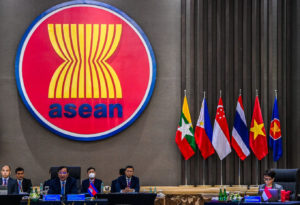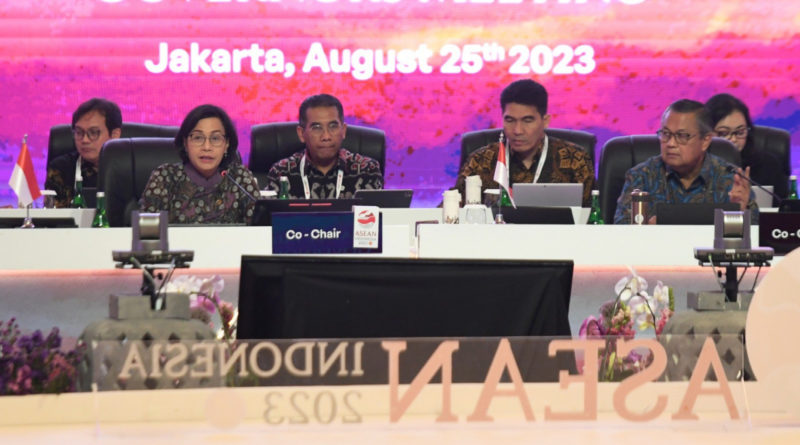GEOPOLITICS – INFORIAL | Finance Minister Sri Mulyani urges ASEAN economic resilience

Escalating geopolitical issues as a result of the rivalry between the United States and China were the main topic of discussion at the 2nd ASEAN Finance Ministers and Central Bank Governors’ Meeting, held in Jakarta from August 22 to 25. Finance Minister Sri Mulyani said the geopolitical tensions posed risks to Indonesia and ASEAN. But on the other hand, they also present opportunities for countries in Southeast Asia. The intensifying competition between Beijing and Washington is driving capital outflows from China to countries in Asia, including those in the ASEAN region.
“Indonesia and the ASEAN region are being considered as new investment destinations for industrial reallocation, such as in manufacturing and high-tech industries,” said the finance minsiter.
During the meeting, ASEAN’s finance ministers and central bank governors agreed to ensure that fiscal and monetary policy instruments created a strong ecosystem for maximizing trade and investment opportunities.
According to the finance ministry, increased collaboration and economic integration in the region are necessary to seize investment opportunities.
“Strong regional economic resilience must be created through policies that strengthen intraregional trade among ASEAN countries,” the finance minister noted.
Trade investment opportunities have provided a breath of fresh air for countries in the region amid slowing international trade and investment due to geopolitical tensions. Strengthening supply chains and intra-ASEAN trade are necessary because ASEAN countries have historically operated individually, as a result of competitive patterns in the region.
Additionally, the challenges at present include urging ASEAN to strategically maintain momentum and collectively navigate ongoing challenges. These challenges include heightened geopolitical tensions, rising debt pressure and policy space constraints, global fragmentation, issues related to food and energy security, declining global trade levels, the threat of technological advancements and climate change risks.
The minister explained that the economic growth of ASEAN continued to be a “bright” and “rare” spot in the global economy. The ASEAN economy is projected to grow by 4.5 percent this year, higher than the global growth rate. While inflation is expected to remain high in some ASEAN member countries, it is relatively lower compared to other regions. ASEAN has managed to maintain interest rates and currency depreciation in the region amid increasing global interest rates. These economic fundamentals demonstrate ASEAN’s resilience to global shocks and the consistency of regional economic development in becoming an epicenter of growth.
“The meeting emphasized the importance of strengthening the macroeconomic policy mix among ASEAN member countries using all available instruments to ensure regional economic stability. The meeting also emphasized the importance of well-coordinated policies to address various risks,” stated the finance minister.
.
Inforial
The Jakarta Post
Jakarta
● Mon, September 4, 2023
 Memento Maxima Digital Marketing
Memento Maxima Digital Marketing
@[email protected]
SPACE RESERVE FOR ADVERTISTMENT


 Memento Maxima Digital Marketing
Memento Maxima Digital Marketing






